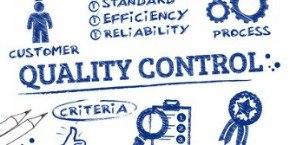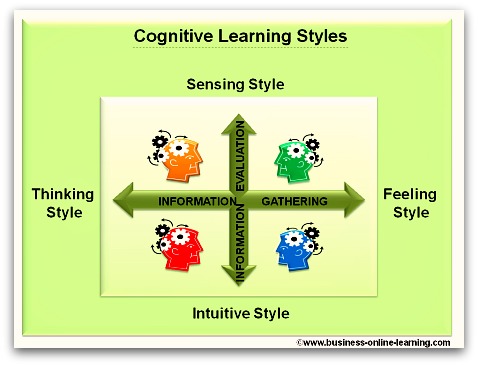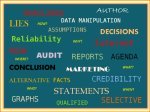What is the Quality Assurance Definition?
To start understanding the Quality Assurance definition, we need to start by looking at how the concepts on Quality have evolved over the years.
- Quality Inspection: This concerned itself mainly with the inspection and testing of outputs. There is no concept of working preventively. Finished products pass inspection or fail to be reworked or scrapped. This is a high risk of faulty parts arriving at the customers.
- Quality Control: Introduction of Statistical Process Control to make inspection more effective, more attempts to control processes. Quality manuals detailing how a process should be operated and stipulating process performance data. Quality is a reactive, blame-seeking approach.
- Quality Assurance: Here the concept of quality goes beyond measurement and feedback control towards looking as the organizations as an entirety, preventative measures are introduced as well as concepts such as the costs of quality. The whole focus is towards working proactively seeking to solve the causes of problems and not their effects.
- Quality Management: This seeks to change the emphasis from merely applying tools and techniques to addressing the attitudes and culture so that quality becomes part of the beliefs and values of everyone in the organization. It takes in the external environment of an organization, looking at Supplier integration, customer loyalty, stakeholder requirements, and more.
The Quality Assurance Definition can be stated as follows:
“Quality Assurance refers to the systematic measurement, comparison with a standard, monitoring of processes and an associated feedback loop that confers error-prevention.”*
*Source: Quality Assurance Definition from Wikipedia, the free encyclopedia
This means that Quality Assurance goes beyond the concepts of Quality Control in becoming proactive in seeking and preventing Quality problems from arising. For the first time the monitoring along a process is considered and serves this systematic approach. The system that governs Quality Assurance Management is defined in a standards document, such as ISO9000, used for qa certification. (See QA Certification for more information on this topic).
In the BS EN ISO 8402, the Quality Assurance Definition is as follows
All the planned and systematic activities implemented within the quality system, and demonstrated as needed, to provide adequate confidence that an entity will fulfill requirements for Quality.
Oxford Dictionary Quality Assurance Definition
Here we find the following Quality Assurance definition:
The maintenance of a desired level of quality in a service or product, especially by means of attention to every stage of the process of delivery or production.
What does this mean?
Looking at the Quality Assurance Definition, we see that Quality Assurance is a management discipline that governs all aspects of work done within an organization, taking also all stakeholder values into account, with a particular focus on Customer requirements and a focus on Supplier quality.
The aim of Quality Assurance is to be an integral part of all functions and processes in an organization, right through from the idea to the product realization.
It is an integrated management system, being integrated in the determination of customer needs and requirements, planning and designing, production, delivery and after-sales service.
The main objective of Quality Assurance is to build Quality into the product or processes and its aims are to strengthen an organization by having these systems in place as well as increasing Customer loyalty because the Quality is right in their eyes.
Having a well run Quality Assurance function within any organization is no longer a nice-to-have but a necessity, in order to maintain levels with the competition on the market.
The Basics in Understanding Quality Assurance Definition
While everyone agrees on the basic understanding of Quality, there are differences in the perception.
Garvin (1988) categorized five bases on which quality can be defined:
Definition of Quality
The following collection of definitions from Wikipedia on Quality in Business aspect I found particularly good:
“The common element of the business definitions is that the quality of a product or service refers to the perception of the degree to which the product or service meets the customer's expectations. Quality has no specific meaning unless related to a specific function and/or object. Quality is a perceptual, conditional and somewhat subjective attribute.”
The business meanings of quality have developed over time.
Various interpretations are given below:
- ISO 9000: "Degree to which a set of inherent characteristics fulfils requirements." The standard defines requirement as need or expectation.
- Six Sigma: "Number of defects per million opportunities."
- Subir Chowdhury: "Quality combines people power and process power."
- Philip B. Crosby: "Conformance to requirements." The requirements may not fully represent customer expectations; Crosby treats this as a separate problem.
- Joseph M. Juran: "Fitness for use." Fitness is defined by the customer.
- Noriaki Kano and others, present a two-dimensional model of quality: "must-be quality" and "attractive quality." The former is near to "fitness for use" and the latter is what the customer would love, but has not yet thought about. Supporters characterize this model more succinctly as: "Products and services that meet or exceed customers' expectations."
- Robert Pirsig: "The result of care."
- Genichi Taguchi, with two definitions: "Uniformity around a target value." The idea is to lower the standard deviation in outcomes, and to keep the range of outcomes to a certain number of standard deviations, with rare exceptions."The loss a product imposes on society after it is shipped." This definition of quality is based on a more comprehensive view of the production system.
- American Society for Quality: "A subjective term for which each person has his or her own definition. In technical usage, quality can have two meanings: The characteristics of a product or service that bear on its ability to satisfy stated or implied needs;A product or service free of deficiencies."
- Peter Drucker: "Quality in a product or service is not what the supplier puts in. It is what the customer gets out and is willing to pay for."
- W. Edwards Deming: concentrating on "the efficient production of the quality that the market expects,"[11] and he linked quality and management: "Costs go down and productivity goes up as improvement of quality is accomplished by better management of design, engineering, testing and by improvement of processes."
- Gerald M. Weinberg: "Value to some person".
*Source:. Quality (Business) From Wikipedia, the free encyclopedia
For more Information on Quality Assurance, check out:
Go to top of Quality Assurance Definition page
Business Online Learning Homepage ›
Dimensions of Quality ›
Quality Assurance Definition













 My name is Martha and I have worked for over 30 years in various aspects of business and in various countries, right around the world.
My name is Martha and I have worked for over 30 years in various aspects of business and in various countries, right around the world.